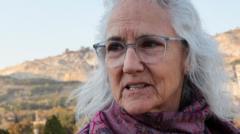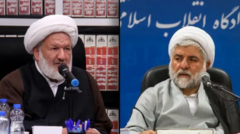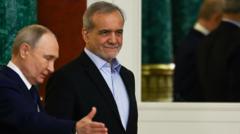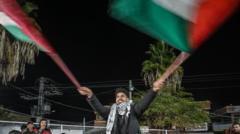Italian journalist Cecilia Sala believed her return to Iran would signify a shift towards openness following the election of a moderate president. However, her hopes were dashed when, soon after arriving in Tehran, she was abducted by agents of the Islamic Revolutionary Guards Corps and taken to the infamous Evin prison. Isolated from the outside world, her ordeal unfolded amidst the backdrop of Iran’s complex political landscape, leading her to question the current state of press freedoms in the nation.
Italian Journalist Cecilia Sala's Imprisonment in Iran: A Harrowing Encounter

Italian Journalist Cecilia Sala's Imprisonment in Iran: A Harrowing Encounter
Cecilia Sala's unexpected incarceration in Iran reveals ongoing challenges for foreign journalists in the country.
Sala's journey began with optimism; after two years of visa rejections, Iran's apparent new direction prompted her visit. She sought to witness the changes firsthand after the notable women's uprising. Instead, her freedom was stripped away on December 19, when agents forcibly seized her while she was preparing a podcast episode in her hotel. The invasive blindfolding and subsequent detention highlighted the perils journalists face in the region.
As Sala reflects on her experience in Rome, the echoes of her captivity have brought to light the harsh realities many continue to endure in Iran. Her story adds a crucial chapter to the ongoing narrative of press repression and political tension, underscoring the fragile situation of liberties in a country grappling with reform.
Ultimately, Sala's release allows her to voice an experience that not only affects her but also amplifies the facts surrounding the larger crisis of freedom of expression in Iran. Her journey stands as a cautionary tale, emphasizing the risks that journalists take when uncovering truths in politically volatile environments.
As Sala reflects on her experience in Rome, the echoes of her captivity have brought to light the harsh realities many continue to endure in Iran. Her story adds a crucial chapter to the ongoing narrative of press repression and political tension, underscoring the fragile situation of liberties in a country grappling with reform.
Ultimately, Sala's release allows her to voice an experience that not only affects her but also amplifies the facts surrounding the larger crisis of freedom of expression in Iran. Her journey stands as a cautionary tale, emphasizing the risks that journalists take when uncovering truths in politically volatile environments.



















